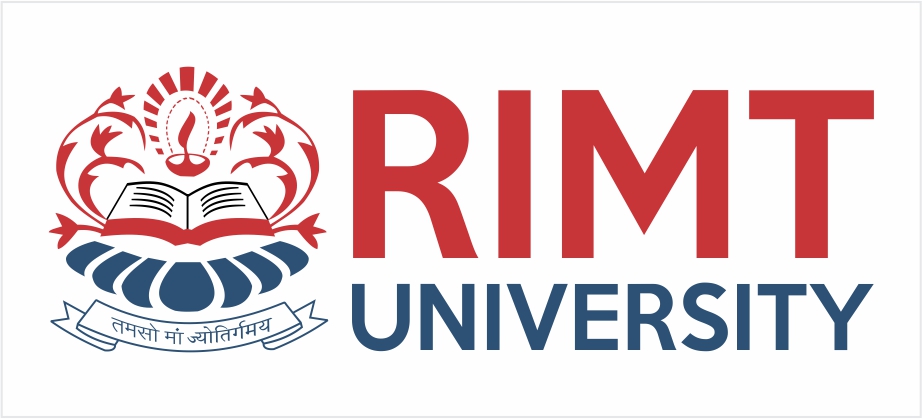About Programme
M. Tech – Computer Science & Engineering is a postgraduate programme. This course is designed to equip with the knowledge and skills to develop innovative solutions which the modern computing industry requires. The focus is on understanding and making the right choice of abstractions thus making it possible to implement IT solutions from existing and future components. The programme covers areas such as safe and secure systems, system integration, distributed and embedded systems, networks, software engineering, algorithms and logic, system-on-chip and digital systems. After passing the Master Degree, candidates have many career options in different fields.
Eligibility & Admission
Pass in B.E. / B. Tech. in Computer Science Engineering / IT
| PROGRAM FEE | AMOUNT |
|---|---|
| Application Fee (One Time) | 1,000/-INR |
| Registration Fee (One Time) | 15,000/-INR |
| Security (One Time – Refundable) | 8,000/-INR |
| Semester Fee | 52,500/-INR |
Scholarship
| Marks in Graduation | Scholarship Per Semester | Applicable Fee After Scholarship Per Semester |
| 60% / 6CGPA and Above | 30% | 36750/-INR |
| Percentile | Scholarship Per Semester | Applicable Fee After Scholarship Per Semester |
| More than 95 | 30% | 36750/-INR |
| Between 90 – 95 | 20% | 42000/-INR |
| Between 85 – 89 | 10% | 47250/-INR |
| Disability Level | Scholarship Per Semester | Applicable Fee After Scholarship Per Semester |
| 90% & Above 90% | 30% | 36750/-INR |
| 75% & Below 90% | 20% | 42000/-INR |
| 50% & Below 75% | 10% | 47250/-INR |
| Category | Scholarship Per Semester | Applicable Fee After Scholarship Per Semester |
| Wards of Param Veer Chakra | 30% | 36750/-INR |
| Winners of Maha Veer Chakra | 20% | 42000/-INR |
| Winners of Veer Chakra | 10% | 47250/-INR |
| Work Tenure | Scholarship Per Semester | Applicable Fee After Scholarship Per Semester |
| More than 5 years continuous service | 30% | 36750/-INR |
| 1 Year – 5 Years continuous Service | 20% | 42000/-INR |
| Category | Scholarship Per Semester | Applicable Fee After Scholarship Per Semester |
| Single girl child | 20% | 42000/-INR |
| Category | Scholarship Per Semester | Applicable Fee After Scholarship Per Semester |
| Parentless | 30% | 36750/-INR |
| Either fatherless or motherless provided the annual family income is less than 2.5 lakh | 20% | 42000/-INR |
Learning Outcomes
An ability to function on multi-disciplinary teams through advanced courses such as Advanced Database Management System, Data Mining, Software Testing and Validation, Digital Image Processing and Artificial Intelligence.
An ability to identify and solve real world problems through research carried out by the scholars.
An understanding of professional and ethical responsibility towards the society and providing solutions for the welfare of the same.
An ability to use the latest techniques, skills, and modern software engineering tools.
Programme USP
Post Graduates will demonstrate competency in recent technologies in the global market.
Research work carried out through this programme will open the path at higher levels of research.
The program equips the students with knowledge regarding computer hardware components, circuits, devices, communication devices in addition to software packages.
Paper publication will establish synch between academia-industry on the same time, leading to experiential learning.
- State-of-the-art laboratories with advanced equipment and software to provide hands on practice to the candidates and developing industry based products.
Programme Education Objectives (PEOs)
- PEO1 To provide a solid foundation in various streams of Computer Science & Engineering.
- PEO2 Enrich the learners to exhibit research skills and knowledge to further their career.
- PEO3 Exhibit Professionalism, ethical approach, communication skills, team work on multidisciplinary projects and adapt to modern trends by engaging in lifelong learning
- PEO4 : Develop experimental setup for modelling of engineering problems.
Programme Outcomes (POs)
- PO1 Ability to apply knowledge of mathematics, science and engineering fundamentals to the solution of complex engineering problems.
- PO2 Able to identify, formulate and analyse complex engineering problems to obtain valid conclusions using principles of mathematics, natural sciences and engineering sciences.
- PO3 Ability to design solutions of complex engineering problems as well as can design system processes that meet the specified needs with the appropriate consideration for societal and environmental considerations.
- PO4 Able to use research-based knowledge and research methods including design, analysis and interpretation of data to provide valid conclusions.
- PO5 Able to use modern IT tools to complex engineering activities with an understanding of the limitations.
- PO6 Understanding of the social, cultural, global and environmental responsibilities of a professional engineer.
- PO7 Understanding of impact of professional engineering solutions in societal and environmental contexts and demonstrate the knowledge of and need for sustainable development.
- PO8 Understanding of professional and ethical responsibilities and commitment to them.
Programme Specific Outcomes (PSOs)
- PSO1 Design software systems, components, or processes to meet identified needs within economic, environmental and social constraints & make them employable in product-oriented Industries.
- PSO2 Ability to apply mathematical foundations and algorithmic principles for modeling and simulation of engineering problems.
- PSO3 Use research based knowledge and tools for the analysis and interpretation of data to synthesize information for obtaining valid conclusions.
Career Prospects
Students can also go for further study and research in the fundamental and applied aspects of Computer Science and Information Technology and related disciplines. Typical job profiles are IT Consultants, Software Programmers, IT analysts, Software Designers, Product Development – Analysts or Architects, Technical Analysts, Web Application Developers, Database Administrator s, Professors and Network Administrators.
